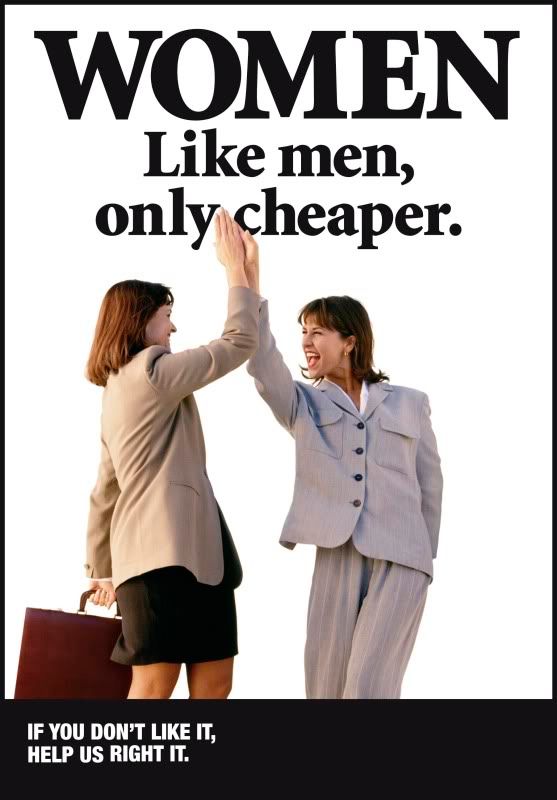TLDR: It is commonly alleged that there is a persistent gender pay gap which is unjustified by the productivity of male and female employees. If this is true, businesses should be able to make lots of free money just by choosing to employ more women. Why is this ‘pay gap’ usually presented as a moral issue rather than just an error by businesses that they can profit from correcting?
It is frequently claimed that across the developed world there is a persistent gender pay gap which is unjustified by the relative productivity of male and female employees (for example, here and here). This is presumably because business managers and owners underestimate the (market) value of the work done by women. Women undervaluing their own work or being bad negotiators would not be much of an explanation if businesses assessed productivity correctly; competition between potential employers would bid up the wages of women regardless.
Most people oppose the wage gap because they oppose gender discrimination. But if women are such a bargain to hire, it’s also clearly a chance for employers to make free money. This is a message businesses are more likely to be receptive to. The one non-sexist firm in a market of sexist firms would make a killing! So rather than frame the wage gap as an issue of moral condemnation, why not present the wage gap as an error that businesses can profit from correcting? A few possible reasons:
- Campaigners want to seem idealistic and opposed to sexism more than they actually want to solve the ‘problem’.
- The pay gap is in fact justified by productivity differences, and if the reasoning above were known more widely this would soon become obvious.
- Campaigners on the issue don’t understand economics.
- The campaigners care about the issue because they oppose discrimination, and they assume others (should) feel the same way.
If the wage gap were real and could be demonstrated (for example by studies showing businesses with a greater proportion of female employees were more profitable), businesses should be falling over themselves trying to employ more women, just as businesses work hard to save money and be efficient in lots of other ways. In doing so, they ought to drive the wages of women up until there were no free profits to be made just from employing more women. I can only see a few ways an ‘unjustified wage gap’ could persist for long:
- The pay gap is unjustified but this cannot be convincingly demonstrated and no business has yet thought to try the ’employ more women’ model.
- Almost all businesses owners, managers and potential competitors for those positions are sexists who are biased against women and manage their businesses based on these intuitions rather than profit maximising principles they think up.
- The ultimate customer actually values the same product less if it is produced by a woman. In this case there really is a difference in the productivity of men and women from the business’s point of view, though this is still due to sexism.
- Almost all businesses owners, managers and potential competitors for those positions are sexists who are willing to sacrifice profit just to maintain a wage gap.
None of these seems likely to me. By contrast the reasons women might be less productive employees on average are all reasonable: the possibility of pregnancy, a greater likelihood of working part time, lower dedication to one’s career and a preference for low wage professions.
We also have the mystery of why politicians, the media and business groups don’t just call the campaigners out on their silly strategy and the basic implausibility of a gender pay gap as outlined above. Perhaps looking cynical about this issue is just too dangerous so they must all go along with the idea that the pay gap makes sense. Lucky I’m not worried about my reputation, so I can tell you this.
Tagged: altruism, economics, efficiency, rationality, sexism
